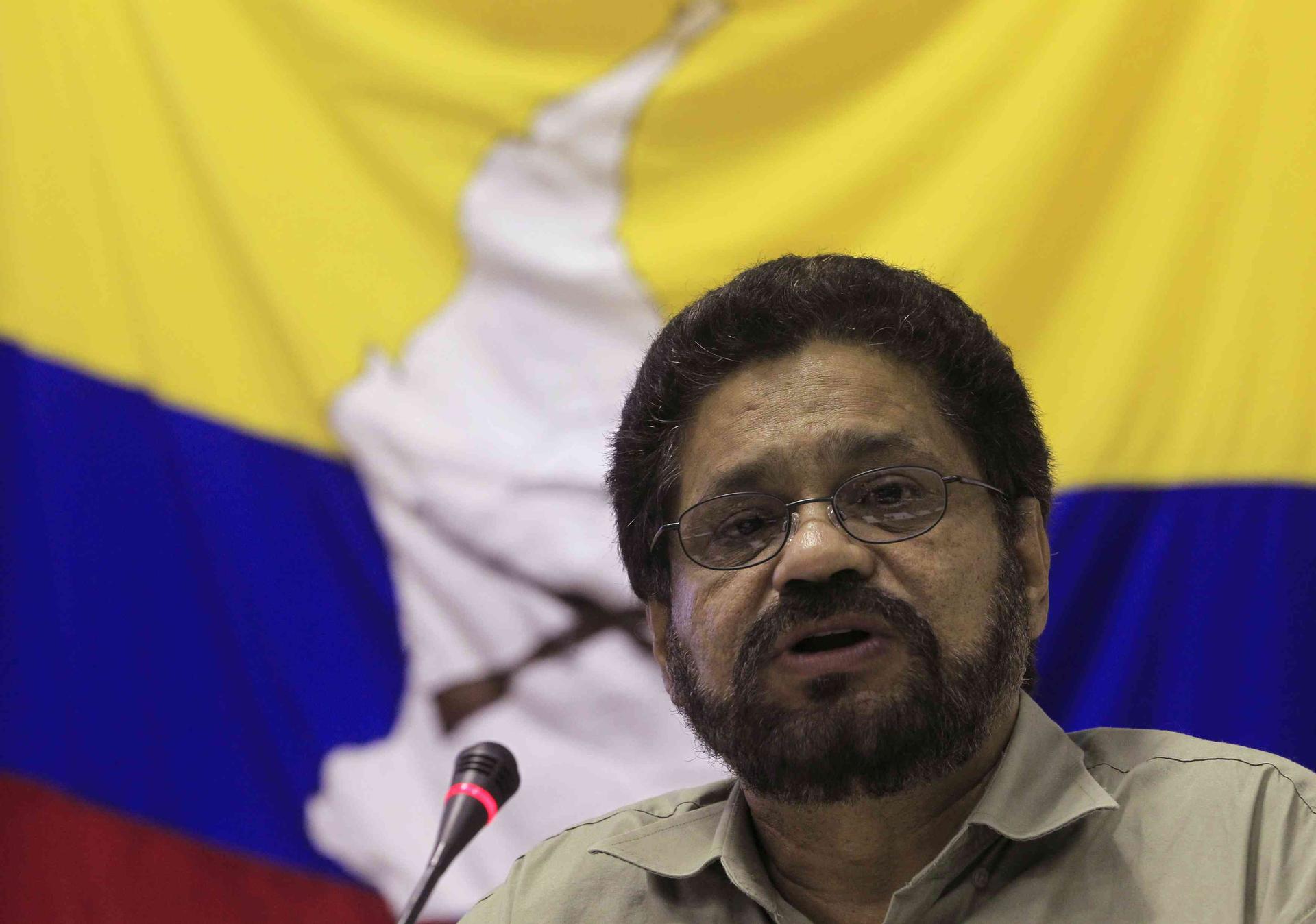Colombia’s FARC rebels face history in considering return to politics
FARC peace negotiator Ivan Marquez says the organization’s main goal is social justice. (Photo by Enrique De La Osa/Reuters.)
At peace talks in Cuba, the Colombian government is urging Marxist rebels to disarm and form a political party.
The guerrillas, known as the Revolutionary Armed Forces of Colombia (FARC), are understandably wary.
In the 1980s, the FARC founded the left-wing Patriotic Union party only to see thousands of its members gunned down. Since launching a guerrilla war in the 1960s, the FARC has claimed it’s too dangerous for leftists to run for office and that armed struggle is the only path to political power.
During a ceasefire in the 1980s, the FARC formed the Patriotic Union and the government promised to protect its members. But the FARC refused to disarm. And when the party’s candidates began winning elections, right-wing extremists charged that the Patriotic Union was paving the way for a rebel takeover.
The result was a bloodbath.
All told, 3,000 Patriotic Union members, including dozens of city council members, mayors and congressman, were killed. Also, two of the party’s presidential candidates were assassinated, allegedly by paramilitaries who often worked in cahoots with the Colombian army.
But now, the government claims security has improved and Colombia is now safe for one-time guerrillas to stump for votes.
Steven Dudley, who wrote a book about the Patriotic Union called “Walking Ghosts,” calls the destruction of the party “political genocide.”
“And what was left of this political party,” Dudley said, “was this sort of lost hope, this sense that an opportunity had been blown in the 1980s for Colombia to come to some sort of peace agreement.”
To be sure, the FARC has committed war atrocities of their own, including massacres and kidnappings. So, even if the two sides reach a peace deal during negotiations in Havana, some rebels may be legally barred from running for office.
But those guerrillas who are allowed to run fear a violent backlash.
“Our main goal is social justice,” said chief FARC peace negotiator Ivan Marquez at a recent news conference in Cuba.
Years ago, Marquez disarmed and served in Congress for the Patriotic Union. But amid the killings, he figured the only way to survive was to return to the mountains with the FARC.
Now, Marquez vows the FARC will not repeat the tragedy of the Patriotic Union.
Still, Colombia’s political landscape has changed dramatically. The paramilitary groups that targeted the Patriotic Union in the 1980s and 90s have largely disarmed. What’s more, former fighters from other guerrilla groups that signed peace treaties now serve as legislators and mayors.
Last year, Gustavo Petro, a former guerrilla, was inaugurated as mayor of Bogota, Colombia’s capital. Meanwhile, the Colombian government is trying to make amends for its role in the destruction of the Patriotic Union.
At a somber ceremony in the Colombian Congress, the government formally apologized for the death of Manuel Cepeda, a Patriotic Union senator who was killed in 1994 by state security agents. Last month, a Colombian court restored legal status to the Patriotic Union. And surviving members are determined to re-establish their party.
But this new Patriotic Union doesn’t even have an office. The party’s leader, Omer Calderon, met a reporter at a deserted café in downtown Bogota.
“We’re looking to build a broad alliance between the Patriotic Union and other left-wing parties,” Calderon said, “leading to a significant leftist presence in the Colombian Congress.”
Calderon said that alliance could include members of the FARC if the guerrillas sign a peace accord.
Despite the dangers, Dudley believes it’s time for the FARC to give peaceful politics a second chance.
“Initially, anyone who runs a campaign and who is an ex-guerrilla, especially an ex-FARC member, is going to have to have incredible amounts of protection. However, over time these wounds will heal. It takes a while, but these things change. And people’s perceptions of these guys change. And I think the same would happen with FARC members,” he said.
For that for happen, the FARC must first agree to lay down its arms. But after nine months of peace talks, the guerrillas and the government have yet to make much progress on that front.
